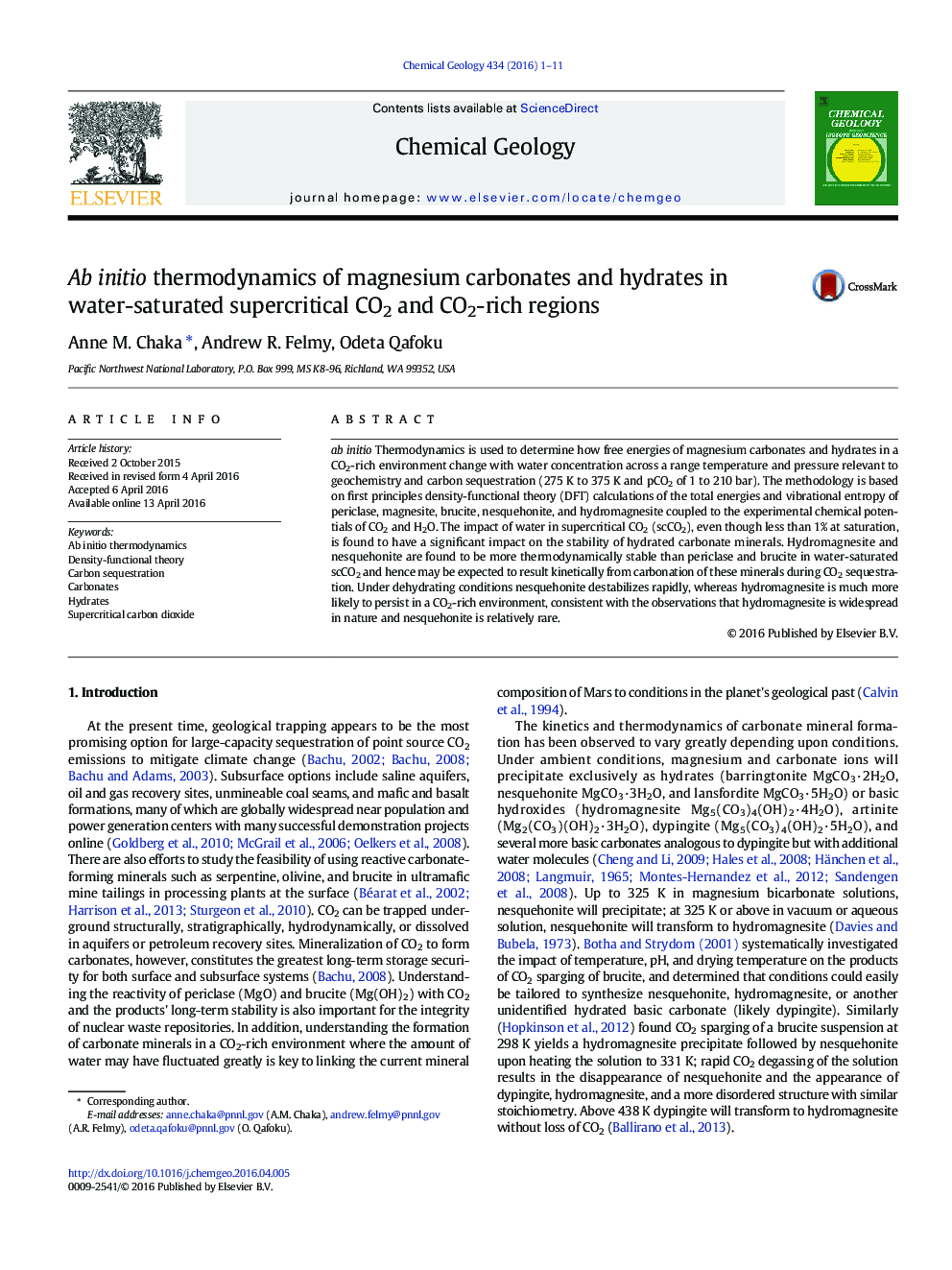| Article ID | Journal | Published Year | Pages | File Type |
|---|---|---|---|---|
| 4698270 | Chemical Geology | 2016 | 11 Pages |
ab initio Thermodynamics is used to determine how free energies of magnesium carbonates and hydrates in a CO2-rich environment change with water concentration across a range temperature and pressure relevant to geochemistry and carbon sequestration (275 K to 375 K and pCO2 of 1 to 210 bar). The methodology is based on first principles density-functional theory (DFT) calculations of the total energies and vibrational entropy of periclase, magnesite, brucite, nesquehonite, and hydromagnesite coupled to the experimental chemical potentials of CO2 and H2O. The impact of water in supercritical CO2 (scCO2), even though less than 1% at saturation, is found to have a significant impact on the stability of hydrated carbonate minerals. Hydromagnesite and nesquehonite are found to be more thermodynamically stable than periclase and brucite in water-saturated scCO2 and hence may be expected to result kinetically from carbonation of these minerals during CO2 sequestration. Under dehydrating conditions nesquehonite destabilizes rapidly, whereas hydromagnesite is much more likely to persist in a CO2-rich environment, consistent with the observations that hydromagnesite is widespread in nature and nesquehonite is relatively rare.
Graphical abstractFigure optionsDownload full-size imageDownload as PowerPoint slide
